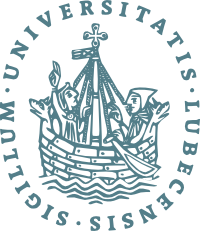Model Checking
This course is concerned with model checking as a formal verification technique. It touches on theoretical foundations, algorithms and different optimisation and application techniques.
Classically, model checking is the problem from formal logic of deciding whether a given structure is a model of, i.e., satisfies, a given formula from some logical language. Since the emergence of automated verification techniques based on logical specification languages, the term model checking is used in a broader sense for a set of frameworks and techniques that aim at automatic evaluation of a formalised correctness property on a system or an abstract model of it.
Page in Modulhandbuch: https://www.uni-luebeck.de/index.php?id=6269&tx_webparser_pi1[modulid]=1060
Page on Moodle: https://moodle.uni-luebeck.de/course/view.php?id=3597
Prerequisites
The course builds on theoretical foundations typically taught in undergraduate courses in computer science. Attendees are expected to be familiar with basics of
- propositional and first-order (predicate) logic
- formal languages and automata theory (regular languages, finite automata, computability and complexity)
- computer programming, algorithms and data structures
- News
- Research
- Teaching
- Staff
- Martin Leucker
- Diedrich Wolter
- Ulrike Schräger-Ahrens
- Mahmoud Abdelrehim
- Aliyu Ali
- Christopher Walther
- Phillip Bende
- Moritz Bayerkuhnlein
- Marc Bätje
- Tobias Braun
- Gerhard Buntrock
- Raik Dankworth
- Anja Grotrian
- Raik Hipler
- Elaheh Hosseinkhani
- Frauke Kerlin
- Karam Kharraz
- Mohammad Khodaygani
- Ludwig Pechmann
- Waqas Rehan
- Martin Sachenbacher
- Andreas Schuldei
- Mahdi Pourghasem
- Manuel Herbst
- Inger Struve
- Annette Stümpel
- Gesina Schwalbe
- Tobias Schwartz
- Daniel Thoma
- Sparsh Tiwari
- Lars Vosteen
- Open Positions
- Contact

